A toast to the 2019 Alumni World Reunion
Laurie Munn: the portraits of a lady A chapter is born... Create your own!
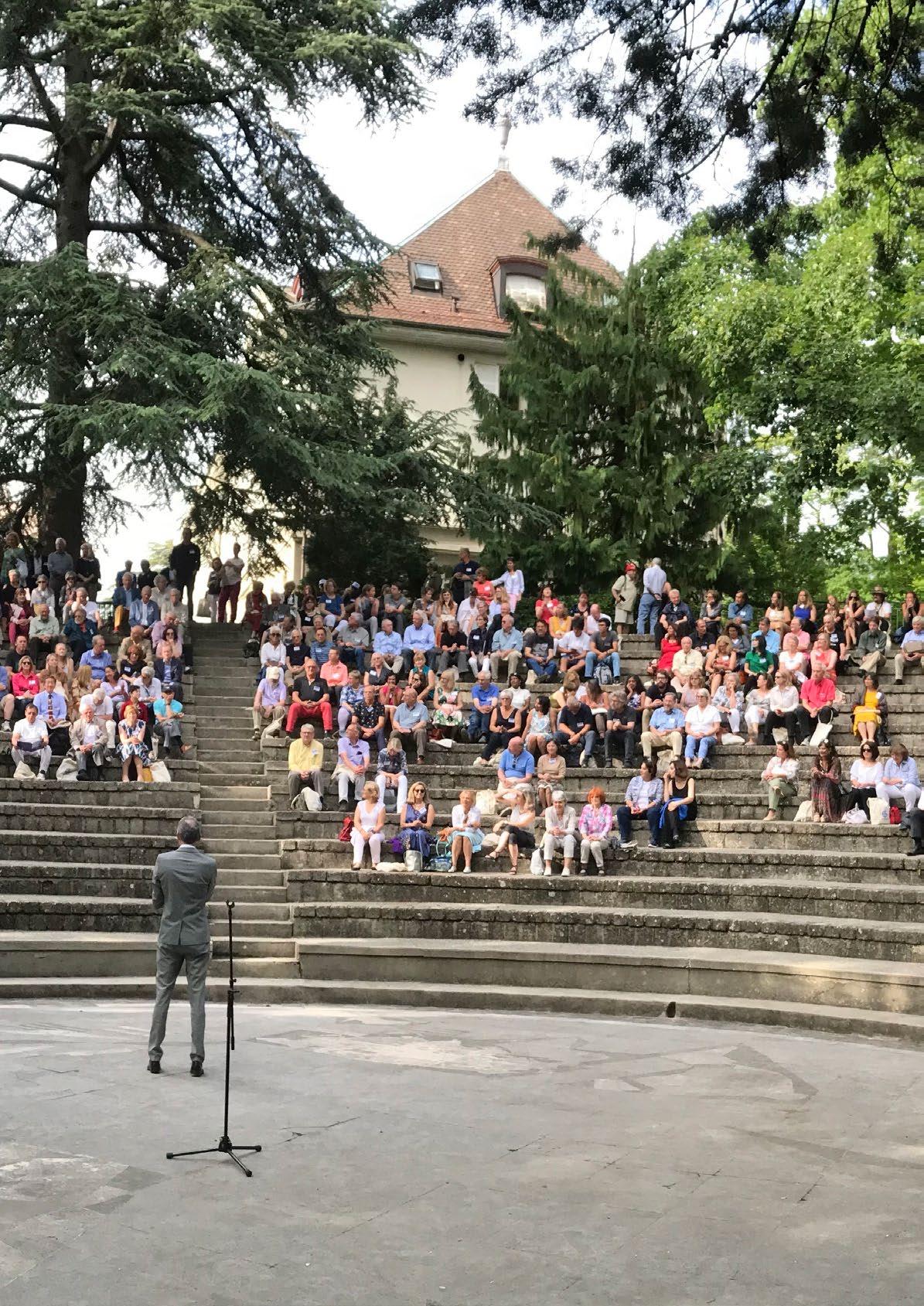
ECOLINT MAGAZINE • N°24 AUTUMN / AUTOMNE 2019
CONTACTS
WEB
Foundation: www.ecolint.ch Ecolint Camps: www.ecolint-camps.ch
Alumni: alumni.ecolint.ch Centre des arts: www.ecolint-cda.ch Institute: www.ecolint-institute.ch
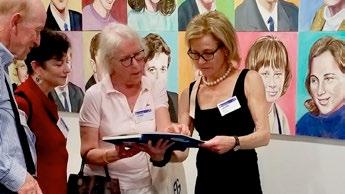
MAKE A GIFT
Ecolint is a not-for-profit Foundation. Our Director of Development Antonello Barbaro is available to discuss ways of providing additional support via a regular or once-off donation. Taxpayers from various jurisdictions, including the US, the UK and Switzerland, can benefit from tax deductions (see page 5).
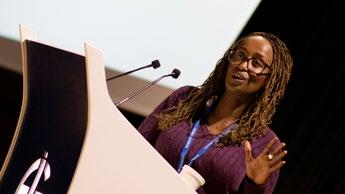
Visit: www.ecolint.ch/support
Contact: antonello barbaro@ecolint.ch
+41 (0)22 787 24 37
IMPRESSUM
Editor-in-Chief: Michael Kewley (Director of Marketing & Stakeholder Relations)
Managing Editor: Thaïs Ruegg (Alumni Community Manager)
Editorial Team: Tania Gentet Ganose (Communications Associate), Catherine Mérigay (Communications Manager), Francis Poncioni (Graphic Designer), Alejandro Rodriguez-Giovo (Foundation Archivist)
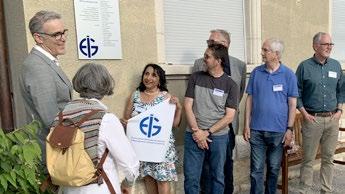
International School of Geneva, 62, route de Chêne, CH-1208 Geneva
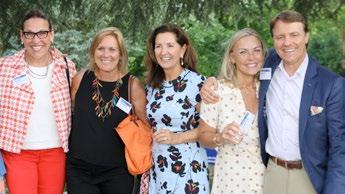
Echo is published twice a year by the Marketing & Stakeholder Relations Department, International School of Geneva and is available on the school and alumni websites. For more information about echo or to submit information for publication please contact the Managing Editor (thais.ruegg@ecolint.ch). The Marketing & Stakeholder Relations Department has made every effort to ensure that the information contained in this edition is accurate and complete. However, despite our sincere desire to avoid errors they might occur.
© Copyright International School of Geneva, October 2019.
echo.magazine@ecolint.ch
3 A word from the DG 4 News and views
Continuing education: teachers who are still students
Calling for equal rights: Ecolint’s first gender equality conference
Laurie Munn: The portraits of a lady 9 Ne jamais abandonner 10 Toasting to the 2019 Alumni World Reunion!
The returnees 14 ESP work placements: A hands-on approach to Inclusion
Write on! 18 A chapter is born… Create your own !
A legendary alumna On the cover: The Alumni World Reunion
6
7
8
12
16
19
EMAIL & TELEPHONE Foundation administration@ecolint.ch +41 (0)22 787 24 00 Admissions admissions@ecolint.ch +41 (0)22 787 26 30 Alumni Office alumni@ecolint.ch +41 (0)22 787 25 55 La Grande Boissière reception.lgb@ecolint.ch +41 (0)22 787 24 00 La Châtaigneraie reception.cha@ecolint.ch +41 (0)22 960 91 11 Campus des Nations reception.nat@ecolint.ch +41 (0)22 770 47 00
7 10 8 18
CONTENTS
2 N°24 | autumn / automne 2019
A WORD FROM THE DG
As a new school year begins, I think back to the students who graduated in June, who, in addition to getting on the other side of their final exams, got to celebrate their Ecolint education with a graduation ceremony.
For our second year in a row, the graduation speaker in LGB’s Greek theatre, was an Ecolint alumna or alumnus. Last year we heard from Douglas Hofstadter (LGB ‘63) Pulitzer Prize winning author of Gödel, Escher, Bach: An Eternal Golden Braid who shared with us reflections on how his single year at Ecolint launched his love of languages, created life-long relationships and nurtured his passion for exploring the sense of self in relation to the external world, consciousness, analogymaking, artistic creation, literary translation, and discovery in mathematics and physics. This year our speaker was Yukiko Omura (LGB ‘74), an illustrious executive in the world of banking and development. She shared with us her moving life story as a globally mobile student who was taught to master English by her Ecolint teacher, Burton Melnick. Burton pledged to correct a piece of written English by Yukiko every day; after a year her English was perfect, teaching her not only that practice makes perfect, but that someone believed in her enough to see her through the exercise.
I like to think of this time of year and these ceremonies not as endings but as beginnings. The beginning of living the Ecolint mission in their lives.
There is no better way to remind us of this than to have our Ecolint alumni in our midst at this time of year as they came back to Ecolint to celebrate and to deepen their relationship with each other and with the
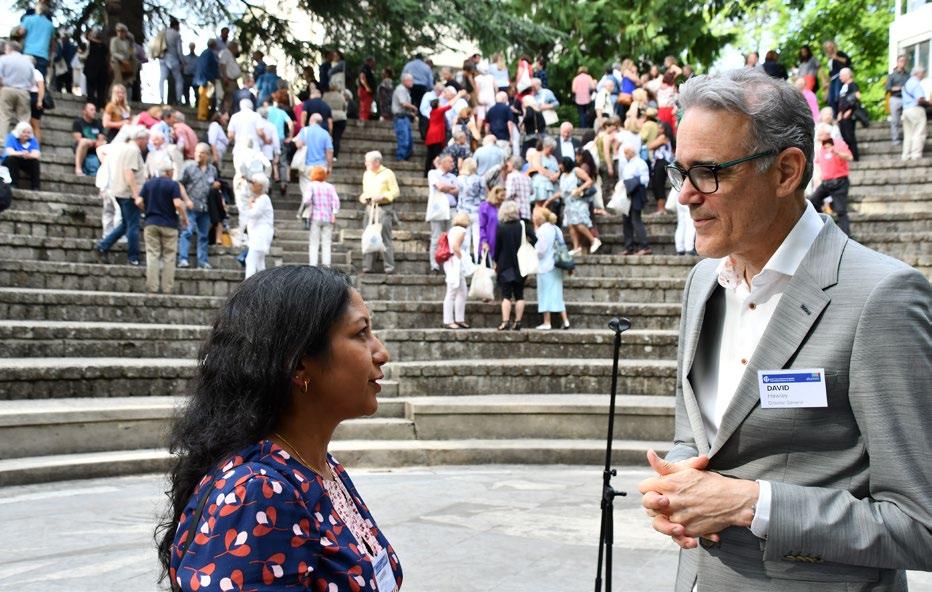
school. This year’s Alumni World Reunion coincided with the 95th year in our history, and saw over 500 alumni from all corners of the planet, ranging in graduation year from 1954 to 2016, assemble in Geneva to enjoy a full programme of activities including campus tours, a gala dinner, a presentation on Ecolint’s history, class dinners, an informal BBQ and meet-ups with former classmates and teachers. The shared bond of Ecolintian values was evident in every conversation I was lucky to have, and is brought to life powerfully by the initiative of our New England alumni community, who came together to raise the funds to pay the school fees for a year for one of our new bursary students who joined us in September, reinstating an Ecolint tradition of philanthropy that can be traced back to the very beginning of our school. A plaque to thank the New England chapter was unveiled during the reunion, and I repeat our sincere thanks to them here.
In order to accelerate our philanthropic efforts, we have recently concluded the appointment of an experienced Director of Development, Antonello Barbaro,
who joined us in September from NYU Abu Dhabi. His arrival is timely, not least because in 2018/2019 the Governing Board has approved two major capital investment programmes: one to integrate the Early Years at Campus des Nations into the Saconnex site, and the second to construct a Centre Sportif at La Grande Boissière. Anyone who is interested in finding out more about these projects, and how they might help, is invited to get in touch with Antonello at antonello.barbaro@ecolint.ch.
Warmest regards from Ecolint.
David Hawley Director General
3 N°24 | autumn / automne 2019
Ecolint’s DG David Hawley exchanges a few words with Alumni World Reunion speaker Lakshmi Sundaram (LGB ’97) .
NEWS AND VIEWS
JEAN ZIEGLER: A RARE SCHOOL APPEARANCE
Jean Ziegler, professeur universitaire, homme politique, altermondialiste et sociologue suisse, est venu discuter de son dernier livre avec les élèves de LGB, dans le contexte de la Guest Speaker Series. Intitulé «Le capitalisme expliqué à ma petite-fille», ce dernier ouvrage dresse le portrait du capitalisme - son histoire, son évolution et «l’ordre cannibal» qu’il impose à la planète - sous forme de questions-réponses entre l’auteur et sa petite-fille.
Lors de sa présentation, alimentée par les questions des élèves, Ziegler a dénoncé un système qui tue: «62% des cancers sont dûs à la destruction de l’environnement ou à la nourriture industrielle !» s’est-il exclamé. «Le capitalisme exploite les mauvais côtés de l’humanité, il répond aux forces négatives qui sont en nous.»
Jean Ziegler a répondu avec humour et une franchise désarmante aux questions préparées par les élèves: «Vous êtes contre le capitalisme mais vous vivez dans le système; est-ce-que ça vous dérange?», «Avez-vous des alternatives au capitalisme?»
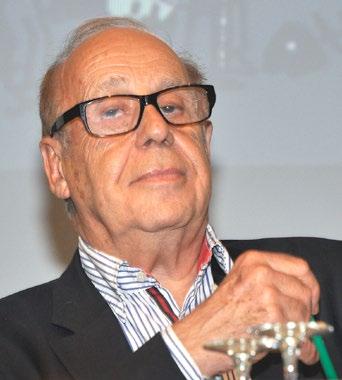
Pour l’orateur, on ne peut pas réformer ou humaniser le capitalisme; il faut trouver des alternatives. D’après lui, ce seront les peuples qui changeront le monde; Jean Ziegler a donc encouragé les élèves à tirer parti de l’Ecolint, «une école formidable ou idées et propositions intellectuelles peuvent être échangées pour réfléchir de manière créative à des solutions.»
ECOLINT CONCOURS DE MUSIQUE
Having hosted both the prestigious Menuhin Competition for young violinists in 2018, and piano and clarinet heats of the Concours de Genève in 2019, Ecolint has now launched its first ever Concours de Musique, under the leadership of Mary-Eileen Marie, Music School Coordinator at La Châtaigneraie and La Grande Boissière. Eighteen students in total from both primary and secondary classes registered for an all-day competition at the Centre des arts on September 21st 2019. Each musician chose one piece from a list of challenging concerto movements by Vivaldi, Bach, Rieding, Haydn, Mozart or Beethoven, and played the piece from memory to an expert jury comprised of Ecolint music staff from across the Foundation. Haolin Yin won 1st place in violin (see winning performance here) , and Qingyang Zhang won 1st place in piano (see winning performance here) , both earning the chance to perform as a soloist with the Orchestre de La Grande Boissière at a concert on November 3, 2019 and also receiving a season ticket to the Orchestre de la Suisse Romande. Planned as an annual fixture in the Foundation musical calendar, the 2020 edition will take place at La Châtaigneraie, with a focus on different instruments, and a chance to play with the La Châtaigneraie Community Orchestra.
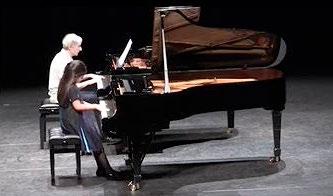
4 N°24 | autumn / automne 2019
CAMPUS DEVELOPMENT PROJECTS

The 2018/19 school year was an extremely important one for members of Ecolint’s Governing Board, who have given the go-ahead for two major capital development projects in the coming years. Firmly embedded in the recently launched Foundation strategic plan, the two new building projects will further enhance Ecolint’s world class learning facilities at both La Grande Boissière and Campus des Nations.
The first project, approved in November 2018, will see the transfer of the Early Years classes currently sited at Pregny to a brand new, state-of-the-art Early Years facility inside the perimeter of the Saconnex site of the Campus des Nations. With approximately 50% more space per learner, the new facilities have been designed from the outset to enable the latest pedagogical practices, to be ecologically sustainable, and to be much more flexible than the current Pregny building. If planning consents follow their usual course, we hope to break ground around Easter 2020, and open the building for learners in 2022.

The second project, approved in March 2019, will see the gymnasium at La Grande Boissière, which is well over 40 years old and in a fairly dilapidated state, finally replaced with a significantly larger Centre sportif, adjacent to the Centre des arts. This new facility will enable a world-class sports education and sports science programme for students of all ages, and provide occupational therapy space for our Extended Support Programme students. Additional flexible learning spaces will allow us to meet the growing demand for purpose-built facilities for both our curricular and extra-curricular programmes. Like the new Early Years building at Saconnex, construction should start midway through next year, with an opening planned for 2022.

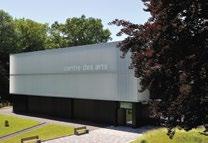
The Ecole Internationale de Genève is a not-for-profit foundation and our day-to-day costs are covered by tuition fees. The school relies on financial support from our community and partners to help achieve development projects.

Get in touch to discuss how you can help!
ways of giving | Support for specific projects
Donor recognition opportunities | Legacies With your support, we can make a difference for current and future generations of Ecolint students. Contact Brian Wahlen, Development Associate, at brian.wahlen@ecolint.ch or +41 (0)22 787 26 19 Visit us at www.ecolint.ch/support BUILDING THE FUTURE TOGETHER 5 N°24 | autumn / automne 2019
Different
|
CONTINUING EDUCATION: TEACHERS WHO ARE STILL STUDENTS
CHRIS HAMBLEY, CONRAD HUGHES, AIMERIC VACHER
Most of our teachers at Ecolint would call themselves lifelong learners. Some take on the challenge of pursuing formal degrees while they are teaching. Thaïs Ruegg asks a few of them about who they are and what led them in this direction.
How long have you been at Ecolint, and in what roles?
Chris: Ten years (minus two years for a sabbatical). In addition to teaching English across Years 7-13, I have also taught the Year 10/11 Video & Animation course, and held the Technology for Learning Coordinator (TLC) position for two years. I’m currently part of the Groupe Santé sustainable community steering group (for well-designed interior and exterior learning spaces).
Conrad: 15 years as English, Theory of Knowledge and philosophy teacher, IB Diploma Coordinator (Campus des Nations), Director of Education (Foundation) and Head of Campus and Secondary School (LGB).

Aimeric: Cela fait 15 ans que je travaille à l’Ecolint. Professeur d’histoire sur le campus de La Châtaigneraie, j’aide mes élèves à obtenir leur maturité fédérale.
What motivated you to start studying for a PhD? What did you study and why?
Chris: A combination of things: I missed the intellectual challenge after completing my MSc in 2011; a former English professor nudged me in the PhD direction, as did a former professor at the University of Edinburgh, which was introducing its distance PhD research programme. I had also started taking an interest in the built environment. Suddenly I had a focus that I was passionate about and that could have value for my day-to-day teaching role.
My PhD in education focuses on the theme of space and power in the context
of learning space design. My sociomaterial perspective foregrounds the material world from desks to lighting to timetables; it examines how the taken-for-granted things of education are bound up in teaching practice, students’ experience of learning, and how people negotiate power.
Conrad: I wanted to reach the highest qualification possible in education so enrolled in a Doctorate in Education (EdD) programme at Durham. I also wanted to practise the lifelong learning message I was preaching as an educational leader and join all those enrolled in Durham MEds or EdDs.
Aimeric: Je ressens constamment la nécessité d’élargir le champ de mes connaissances et de les maîtriser. Entreprendre des études doctorales est un bon moyen de satisfaire ce besoin. Mes recherches actuelles portent sur la bande dessinée médiévale ; un sujet en phase avec mon métier et ma passion.
What was it like to start studying again?
Chris: It felt fun, as always. And rather familiar, for I had recently finished my MSc in Digital Education (e-learning) after four years of part-time study. Starting the PhD also felt thrilling because I was taking on a considerable challenge (6 years of part-time study while still a full-time teacher!)
Conrad: Fantastic. I’ve been a student most of my life with about seventeen years university study including two separate doctorates (BA, Honours, Masters, DEA, PhD, EdD). I’ll miss it! It’s a privilege to be a student.

Aimeric: Il m’est difficile de répondre à cette question. Je ne crois pas avoir véritablement quitté le monde des études depuis que je suis devenu élève. Etudier est dans ma
nature ; n’ayant jamais arrêté, je n’ai pas eu à m’y remettre.
How do you use this professional development in your life at school?
Chris: The PhD centres on a participatory action research project that I led here at school: the creation and ongoing transformation of an ICT learning space centred on collaborative, student-centred learning. Since then (with support and help from students, teachers, service technique, and administration), I’ve also been able to transform other spaces on campus, such as the Hygge Room, drawing on evidencebased design and sustainable approaches.
Conrad: Educational decisions need to have theoretical substance to them. It’s dangerous when non-experts start making major decisions on curriculum and assessment without understanding the research. Educational debate involves strong feelings and vocal stakeholders. It should not become a political playground. Above all, the EdD has taught me to triangulate constantly context with resources and what we know about best practice. The most studentempowering vision of education does not come from trying to please everybody, it comes from the sobre, tempered voice of carefully contextualised, research-based practice. Putting that into place in a practical setting is highly complex.

Aimeric: Par mes études, je consolide mon savoir et je participe à sa construction. Ces points sont essentiels pour un professeur. Le premier me permet de répondre à une grande quantité de questions – les élèves n’en sont jamais dépourvus
quand le second me confère la capacité de m’approprier ce savoir et donc de mieux le transmettre.
–
6 N°24 | autumn / automne 2019
CALLING FOR EQUAL RIGHTS: ECOLINT’S FIRST GENDER EQUALITY CONFERENCE
In April 2019, the Campus des Nations held its first Gender Equality Conference, organised and led by students. Tania Gentet Ganose reports.
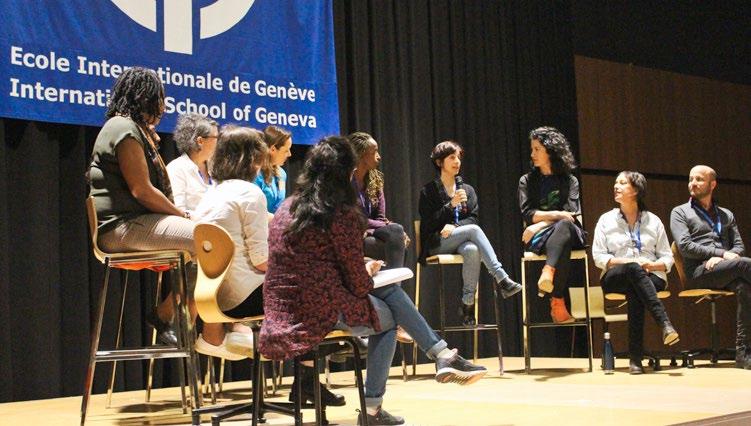
A pair of jeans and green t-shirt seemingly float in mid-air alongside a voluminous fluffy pink skirt to the sound of lullabies sung in 15 different languages. Among these garments and a number of other items on display as part of the exhibition “She’s Gone”, students, teachers, parents and visitors drift along silently and reverently. For these clothes belonged to over 125 women and young girls who were murdered in Israel alone, by jealous husbands, boyfriends, male relatives and total strangers. Some of these crimes were never solved, and many went unpunished.
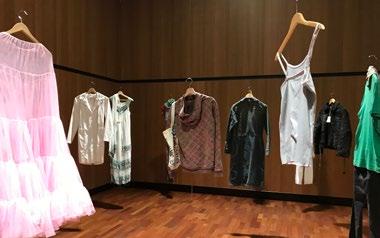
In 1968, when Ecolint’s charter was penned by the founders of the school, a sense that humanity could and had to do better permeated the world. With the first World War recently over, economic strife afflicting millions and countless lives lost, the world stood on the brink of collapse. In 2019, the sense that humanity can do a lot better has come again – this time, with regards to gender equality.
“Often, you have to be the one that steps up and takes the first step in order to effect change,” said Director General David Hawley at the start of the first-ever gender conference. And that’s exactly what Ecolint students decided to do with the Gender Equality Conference held at Campus des Nations in April. Organised and led by students, under the impulse of Spanish teacher and CAS Coordinator Lola Robledo, this one-day conference saw Secondary students of all ages and from each of the Ecolint campuses, pause and reflect on the terrible inequalities that women face across the world.
Eight women speakers, each active in a particular domain, acted as experts in student-led workshops that explored the theme of how to bring about greater gender equality. These included Somali psychotherapist and anti-FGM activist Leyla Hussein, explorer and adventurer
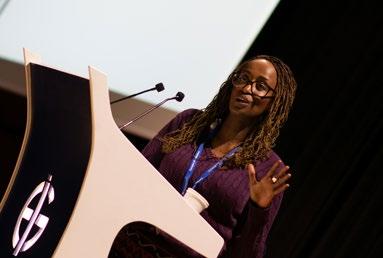
Pip Stewart, award-winning nature photographer Aletheia Casey, Ethiopian human rights lawyer Yetnebersh Nigussie, Manchester-based social activist Ruth Ibegbuna, Spanish behavioural economist Nagore Iriberri, Swiss screenwriter and film director Petra Volpe, and Israeli human rights activist, artist and curator Keren Yehezkeli Goldstein.
During the workshops, students voiced their concerns about the gender equality issues they face or are witness to, and together with the experts brainstormed on how each individual can make a difference within their families, communities, cities, nations and on a global scale. All came together at the end for a round-table discussion to share their conclusions, agreeing that when it comes to gender equality, men must be part of the conversation, and that the single, most important and greatest hope for change is the students themselves!
As expert Petra Volpe concluded: “Ecolint dissolves the borders of nationalism and has shown that doing things differently works.” With male and female students
concluding the conference with a call for equal rights for all, the eight speakers left the conference with a sense of hope that the students of Ecolint will continue to inform themselves, engage and raise their voices to break the barriers that prevent gender equality and end the violence against women and girls.
7 N°24 | autumn / automne 2019
LAURIE MUNN: THE PORTRAITS OF A LADY
It’s a mid-June morning at the Centre des arts, in Geneva, and Laurie Munn is taking down her yearbook show, Echo 1965, with the help of her husband Max. The show, exhibited during the Alumni World Reunion, comprises 122 individual portraits of the 1965 Ecolint graduating class. Laurie used the yearbook’s (then called Echo) black and white photos as her model. Stephen Labovsky (LGB ‘64) tells the story.
The pictures are being wrapped in plastic and crated for the return trip to Tarrytown, New York, where the couple lives and works.
For the past 25 years, Laurie has been painting groups of people lots and lots of people.
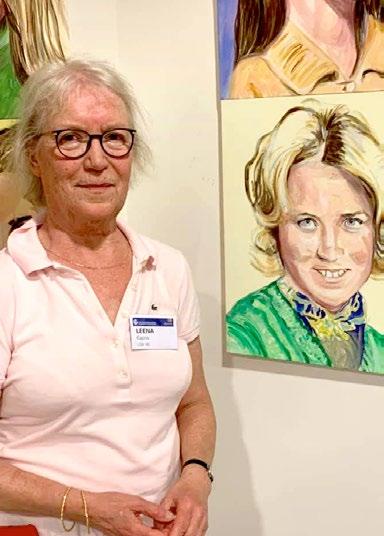
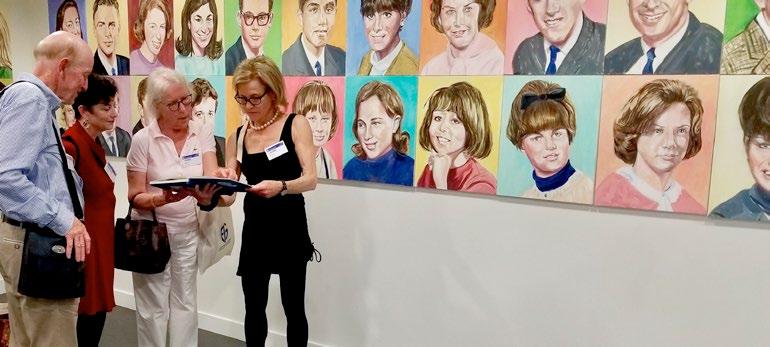
Laurie pauses to answer a question. “I guess I call myself a serial portrait painter. I paint series of things, which is weird, but I like it. I like doing groups of people.”
This is the second time Laurie has done portraits from a yearbook. In 2003, at age 54, she began a Master in Fine Arts programme at the School of Visual Arts in Manhattan. In her backpack was a copy of The Altruist, a 1965 high-school yearbook, from Emerson High School in Union City, NJ, that Laurie rescued off the sidewalk, in Chelsea, 20 years earlier.
As she explained to her class advisor, this yearbook was going to be her thesis: she was going to paint a portrait of every person in The Altruist — all 220 of them.
The high-school yearbook — a chronicle of achievements, interests, loves, insecurities, and vanities — represents a prologue in young students’ lives, and yet it is possibly the last time their story and picture will ever appear between the covers of a proper book.
Until Laurie Munn appeared on the scene, few artists had thought to plumb this most American rite of passage.
I ask Laurie about her two yearbook projects. “How were they alike, and how were they different?”
“I am thinking about how to answer this! The Emerson group was mostly Italian and German working-class families who belonged and identified themselves by their local Parish... the school was very sports oriented — lots of football and baseball teams and memories...they loved to dance. Many of the men went to Vietnam... Most of the alumni remained in New Jersey and many became teachers in that same school system.
“Our Ecolint group was much more diverse and we came from a different socioeconomic group...we were all expected to go on to higher education and I am uncertain how many of my 1965 grads went into the military service...
“(At Emerson) they came from families that spoke Italian and German at home and English in school.... at Ecolint, we often spoke English at home and French and German at school!
“The differences between us now aren’t as big. When I reunited with the Emerson group, we all talked about our kids, grandkids, and the good old days! I found myself doing the same thing last week at the Ecolint reunion! I loved sharing those high-school memories and bemoaning the changing of the Geneva landscape...too many apartment buildings....”
“How has your painting evolved?” I inquired.
“I think that knowing the Ecolint group made my paintings more dimensional...but then maybe they are just better paintings because I got older. I think because the two projects were 12 years apart, maybe I improved.”
8 N°24 | autumn / automne 2019
NE JAMAIS ABANDONNER
«Ne jamais abandonner». Trois petits mots dignes d’un héros. Et c’est bien cela qu’est Jean-Paul Kuelo : un héros qui cache bien son jeu derrière une blouse blanche de laborantin. Tania Gentet Ganose raconte son histoire.
Né dans le village de Lukula en République Démocratique du Congo (RDC), Jean-Paul a eu un parcours plus qu’atypique. Fils d’un médecin de brousse, il marche dans les pas de son père et se rend en Italie pour entreprendre des études de médecine. Celles-ci devenant vite trop chères, il opte à la place pour des études en biologie. C’est à ce moment que commence son engagement humanitaire pour soutenir le développement de sa région et pallier au manque d’infrastructures médicales dans la zone. Aux côtés de ses deux sœurs, il lance GRAFA, un projet qui se développe petit à petit mais qui a transformé la vie de nombreux Congolais.
première fois dans son histoire, l’hôpital a pu être illuminé, et les opérations chirurgicales qui se faisaient jadis à la lumière de lampestorches, pouvaient désormais se faire sous un bon éclairage,» se souvient Jean-Paul. «Ce fut à la fois un moment de chagrin et de réussite»
À ses débuts, en 1985, GRAFA consistait en un petit dispensaire comprenant quatre lits, une sage-femme et une infirmière alternant la garde. Lieu sûr permettant aux futures mamans de recevoir des soins prénataux et d’accoucher en toute sécurité, c’est grâce à ce petit poste de santé que de nombreux bébés ont pu recevoir les premiers soins. Au fil des années, GRAFA a grandi. Le petit dispensaire du milieu des années 80 est devenu un hôpital qui, en 1999, comptait 170 lits et pouvait accueillir des malades souffrant de paludisme, VIH, tuberculose, brûlures, cancers et autres.
En 2004 survient le plus grand défi pour Jean-Paul et GRAFA : son père, source d’inspiration, de réconfort et de conseil, pour lui, ses sœurs et d’innombrables concitoyens habitant Lukula, décède. Administrateur de l’hôpital, il était le cœur battant de l’institution. Mais au moment où ce rayon de lumière s’éteint, un autre apparaît, avec l'installation de panneaux solaires sur l’hôpital. «Pour la
Convaincu depuis toujours de l’importance de l’éducation, c’est en entrant à l’Ecolint, dans son rôle de technicien de laboratoire pour le département de biologie de La Châtaigneraie, que Jean-Paul parvient à élargir le mandat de GRAFA. En effet, Jean-Paul et GRAFA se lancent dans la construction d’une école qui verra le jour en 2015 : le complexe scolaire Padre Vittorio Agostino (PVA) dans le village de N’sioni, qui accueille aujourd’hui plus de 1500 élèves en primaire et secondaire. En 2019, nos élèves de classe 13 ont lancé un projet d’échange culturel entre La Châtaigneraie
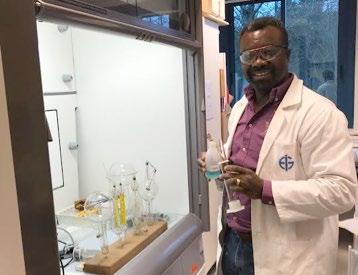
et l’école secondaire PVA. Celui-ci aboutira à la venue en Suisse d’un groupe d’élèves congolais et leur directrice d’école, au cours duquel les élèves intégreront les cours pour apprendre ensemble et partager leurs cultures. «L’idée est de relier les deux écoles et de maintenir le contact sur le long terme via une plateforme virtuelle qui permettrait aux élèves de l'Ecolint, puis à la communauté plus large, de proposer du soutien scolaire, de l’enseignement ou de l’orientation aux élèves du PVA» poursuit Jean-Paul.

Pour notre héros, l’aventure est loin d’être terminée ; il est reparti en RDC cet été. Au menu : compléter le nouveau cabinet ophtalmologique de l’hôpital de Lukula, récupérer les 8’000 livres qui lui ont été donnés par des collègues, amis et donateurs en guise de stock de départ pour la création d’une bibliothèque pour l’école de PVA, et construire un puits dans un village voisin. «Quand on a des objectifs qui sont pour la société et pour soi-même, il ne faut jamais abandonner. Le parcours est plein de montagnes et de vallées, mais le but est là, et même si l’on peut avoir des découragements en cours de route, il ne faut jamais lâcher prise» conclut Jean-Paul. En Suisse ou en RDC, qu’il soit collègue, ami, technicien, voisin ou simple concitoyen, Jean-Paul est, avant tout, et tout simplement, un héros.
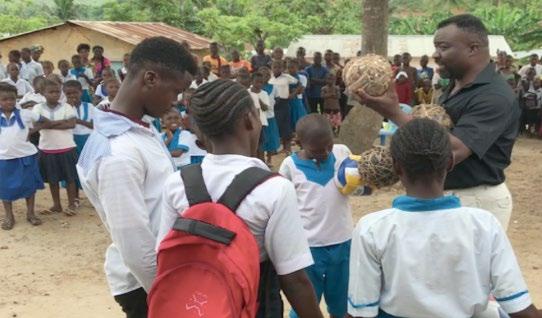
9 N°24 | autumn / automne 2019
A TOAST TO THE 2019 ALUMNI WORLD REUNION !
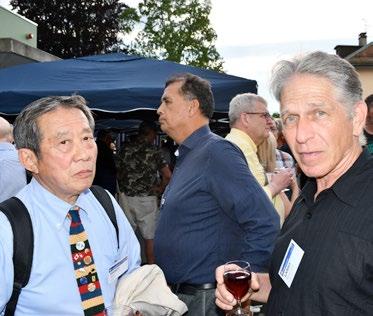
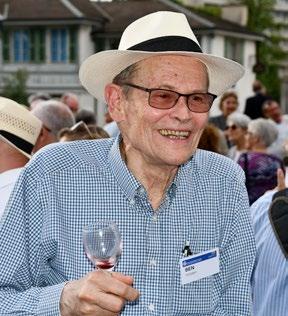
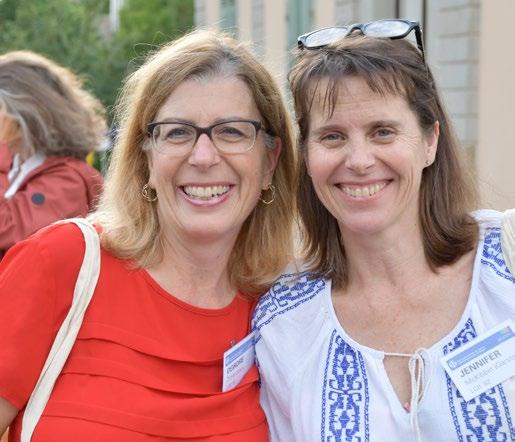
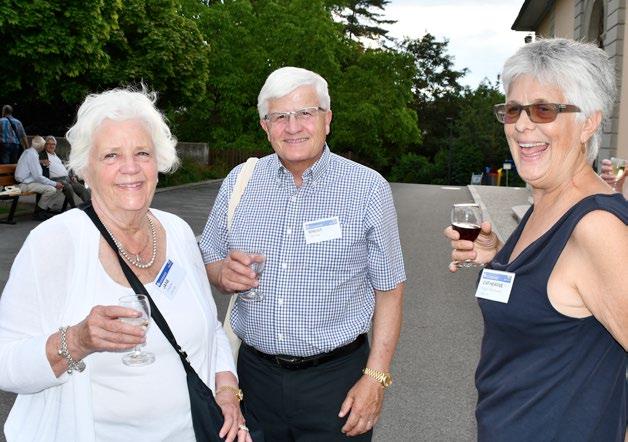
The “Welcome Ecolint Alumni” banner was hung across the main gate, the name badges and welcome packs were neatly organized at the registration tables, and our team of volunteers was briefed on how to check in participants. Only the sun and clouds were still unpredictable –would we have to move everything inside, or would the elements chose to cooperate?
Thaïs Ruegg gives a short summary.
With events divided between La Grande Boissière, La Châtaigneraie, and Campus des Nations, the 8 th Alumni World Reunion gathered more than 500 alumni and friends for a long weekend in June. Representing Ecolint’s true global identity, people attended from more than 28 countries, some hailing from as far as Australia, Japan, and the United States.
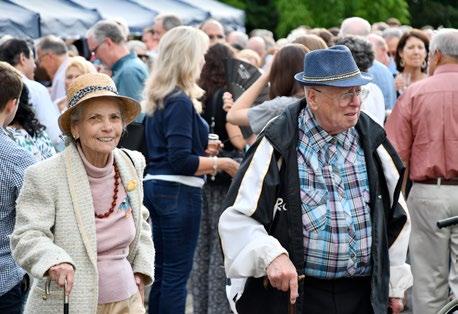
Participants had several opportunities to reconnect and relive memories with former classmates and teachers, to visit their campuses (and witness the changes since they were students there), and learn about Ecolint’s illustrious history. A few brave alumni visited classrooms
and spoke of their Ecolint experience and career choices with current students. Class dinners continued on till the small hours of the morning; and we were told the business at Courbe du Goût (the old Auberge de la Poste) almost doubled that weekend! Dinners and drinks abounded –on the campuses, at different restaurants in and around Geneva, and at the idyllic Domaine de Penthes, for our Gala event.
At LGB and La Chât, current students gave alumni tours filled with historical titbits and surprising anecdotes. Did you know, for example, that the football pitch at LGB used to be a lake? Or that there is a map that details all the changes made
to the La Chât campus since it merged with the Foundation of the International School of Geneva?
The series of events ended with a BBQ at La Chât under a hot summer sun, featuring music from several alumni, a pizza food truck founded by one of our very own alumni, and a diversity of Ecolint attire to take home. The Reunion proved to be a great success, with several alumni speaking of the wonderful and unforgettable weekend they’d had. Everyone’s appetite has now been whetted for the next big Alumni World Reunion in 2024, which will celebrate Ecolint’s 100 Years! It’s not too early to note it in your calendars.
10 N°24 | autumn / automne 2019
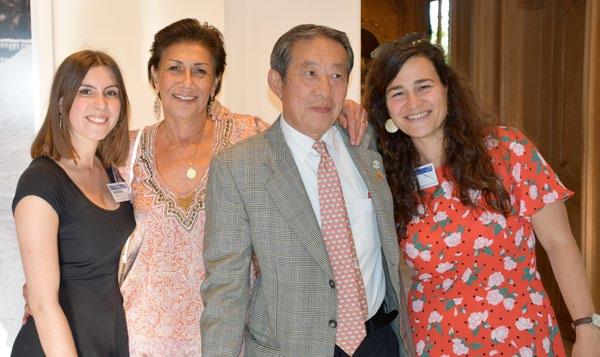
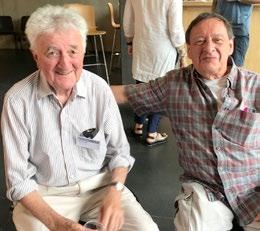
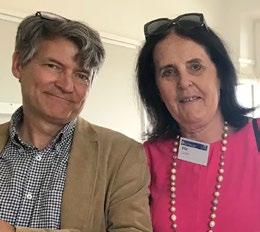
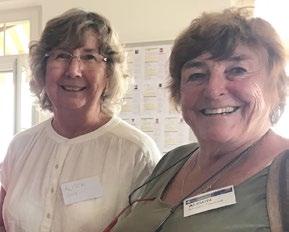
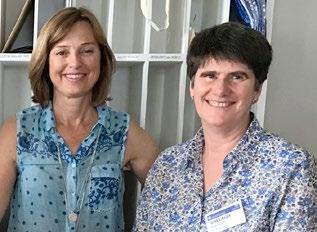
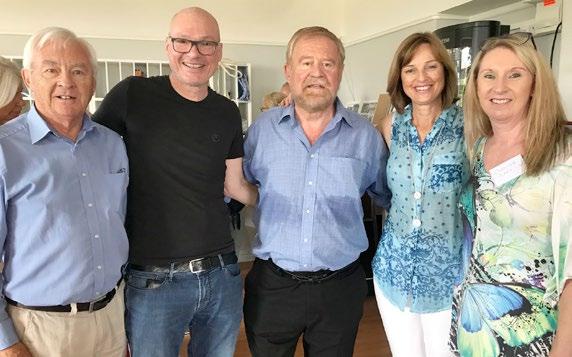
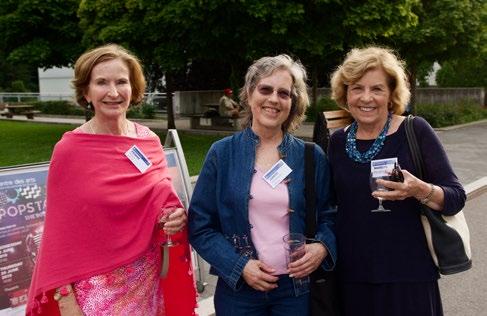
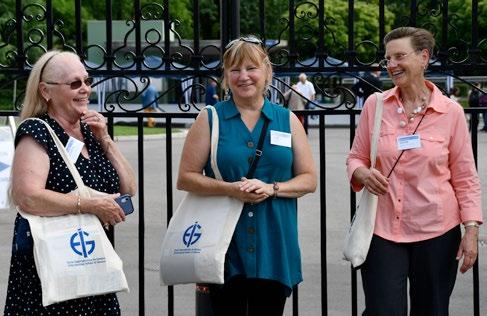
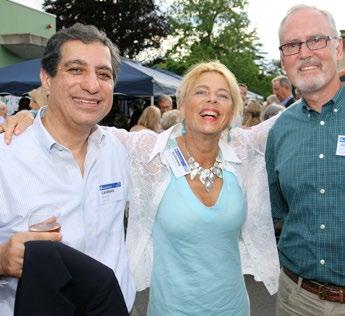
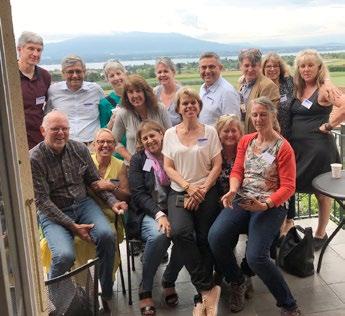
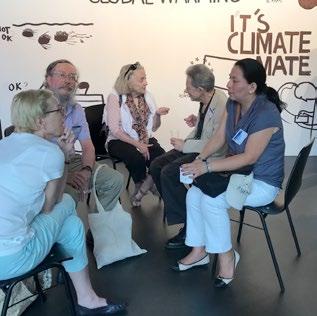
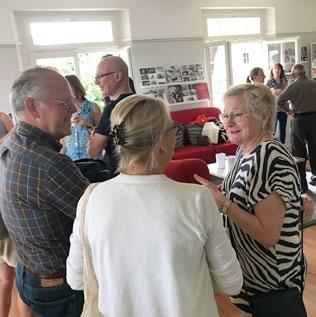
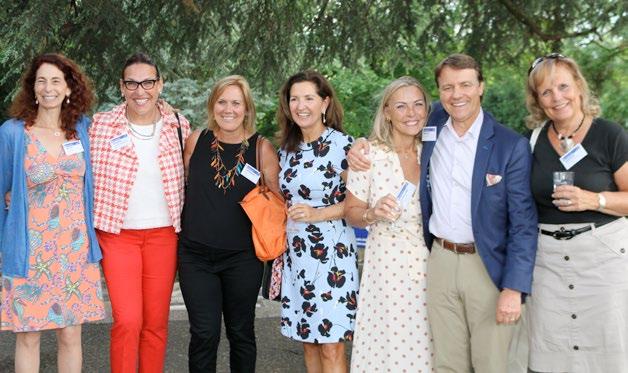
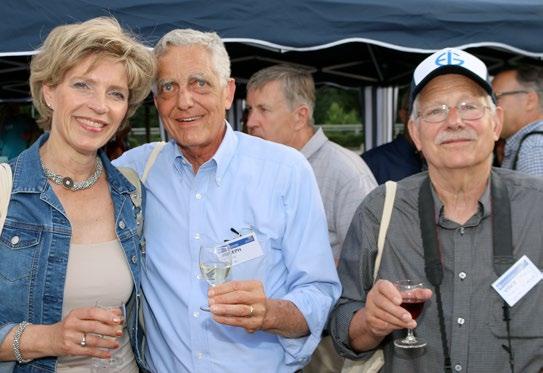
11
THE RETURNEES
Continuing our series on former Ecolint students who have returned to teach at the school, in this edition, we meet Katelyn Bora (La Chât ‘08) and Laura Italici (La Chât ‘93).
Katelyn Bora (La Chât ‘08)
>
>
Economics and Business Management teacher
Secondary School, La Châtaigneraie
When did you start teaching at Ecolint, and on which campus?
I started at La Châtaigneraie in September 2018 as an Economics and Business Management teacher.
When were you a student and at which campus?
I joined the Pregny campus in 1998 and graduated from La Châtaigneraie in 2008.

What did you do after leaving Ecolint? I first went to Canada to complete a Bachelor of Commerce and then headed to Australia for my Masters in Teaching. I taught in Hong Kong before coming back to Switzerland.
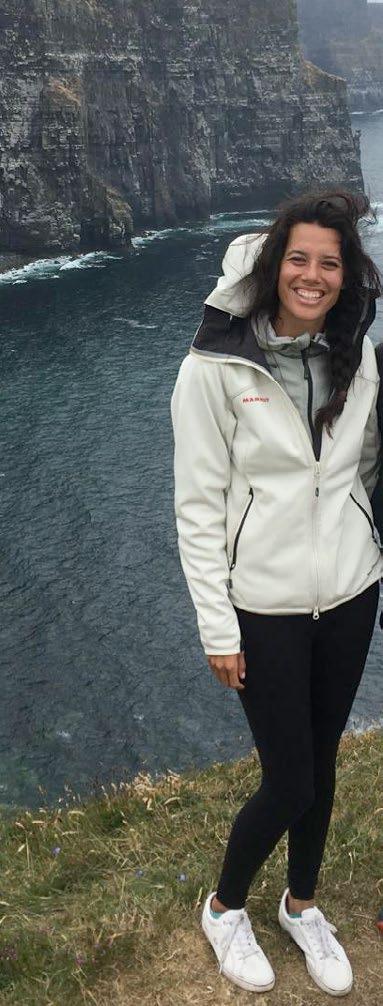
What or who inspired you to be a teacher? How/why did you come back to Ecolint?
I do not think I was inspired so much to be a teacher but I enjoy Economics and Business Management and wanted to share that enthusiasm with others. My dad was an economist who drilled the benefits of free trade into us from a very early age. Mr. Halden, my high school Economics teacher has definitely inspired my style of teaching.
Once I graduated, I couldn’t wait to leave Switzerland and explore the world; but after living abroad I realized how much I missed it. Knowing I wanted to come back to Switzerland, Ecolint seemed like a logical place especially because five of my six IB teachers are still teaching in the Foundation. I figured it must be a pretty great place to work. An added bonus: I saw the opportunity to coach basketball alongside one of my role models, Pat McKinzie (who was my coach when I was a student at La Chât).
Are you ever, as a teacher, reminded of your former life at school?
I’m reminded all the time. Sometimes it is the familiar voices of teachers, or hearing the stories about students getting ready for Bal des Neiges. Other times, it’s just walking past my old locker.
What are the main differences about Ecolint compared to when you were at school? What has stayed the same?
There have been a number of upgrades in terms of the buildings such as replacing the “bubble” with a new sports hall and getting rid of the Portakabins. And frankly, the basketball uniforms are way nicer!
At the same time not much has changed. Although the school seems a lot bigger in terms of the number of students, it still has the same close knit community atmosphere and students still use the same excuses for not doing their homework. A lot of the staff, including service technique, exam invigilators, coaches and teachers are still here.
What are the best things about being a teacher?
The students. There is always a milestone to celebrate with them, whether it is finishing a topic, finishing the syllabus or a big basketball tournament. It makes for a pretty exciting life.
12 N°24 | autumn / automne 2019
Laura Italici (La Chât ‘93)
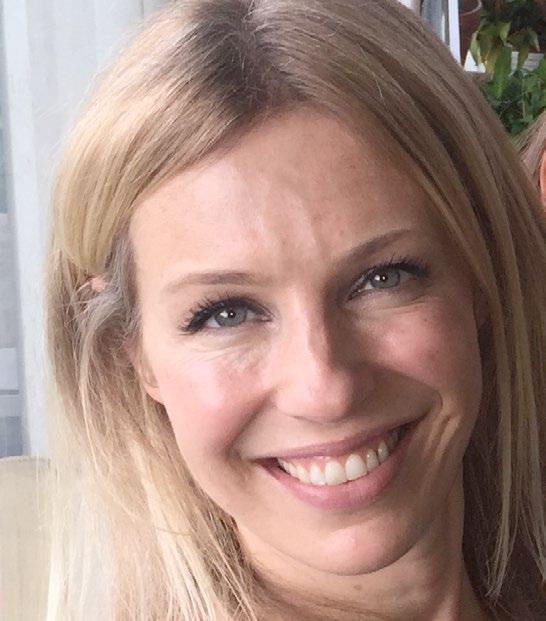
> Learning Support teacher
> Secondary School, LGB
When did you start teaching at Ecolint, and on which campus?
I started teaching at LGB in September 2014.
When were you a student and at which campus?
I was a student at Rigot, Pregny and then La Chât from 1979 until I graduated with the IB in 1993.
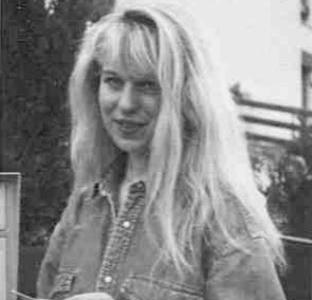
What did you do after leaving Ecolint?
I went to London and studied Business Management at King’s College and Industrial Relations at the London School of Economics. I loved the vibrancy and buzz of the financial district of London and I was lucky enough to gain a place on Morgan Stanley’s graduate programme, in fixed income sales.
I spent 10 years in banking (in Paris, London, Zürich and Geneva), specialising in Emerging Market government and corporate debt. Banking was a fast-paced, competitive and fun club to be a part of and I learnt a lot about being client-focused, the importance of being professional, and how being a woman in this kind of environment meant that you had to be better than the men in order to earn the same level of recognition for your work.
What or who inspired you to be a teacher? How/why did you come back to Ecolint?
Having children spurred me into action towards more worthwhile career goals. If I was going to spend a large chunk of my life at work (and away from my kids), it needed to be doing something I enjoyed and felt was meaningful.
Lots of my teachers at school inspired me, from Mr Weldon, my Year 2 teacher at Pregny to Mrs Ryan, my Maths teacher during most of secondary school at La Chât.
Are you ever, as a teacher, reminded of your former life at school?
I remember how important it was for me to feel a bond with my teachers and to feel supported by them. I see this Ecolint emphasis on relationships and cooperation still going strong today. Ecolint teachers are truly passionate about their students’ wellbeing and character development, and that is evident on a daily basis. I also see how much our students enjoy being part of their school, and it reminds me of the fun my friends and I had at Ecolint.
What are the main differences about Ecolint compared to when you were at school? What has stayed the same?
The main difference is how much Ecolint has grown. La Chât was made up of just two buildings plus the old sports hall, and Nations did not exist yet. Things that have stayed the same include the school’s unique culture of togetherness. I really enjoyed
school, my teachers and being a part of the La Chât community. Today, I witness the culture of caring for students still running deep both at LGB, where I teach, and at La Chât, where my two daughters are primary school students.
What are the best things about being a teacher?
You get to be a part of this exceptional school, but without the stress of taking exams!! More seriously, after banking, I wanted to do something I felt was more worthwhile than making money for yet another hedge fund or insurance company. Having children crystallised my thinking and I started my PGCE when my first daughter was 1 year old. I have been teaching since.
13 N°24 | autumn / automne 2019
ESP WORK PLACEMENTS: A HANDS-ON APPROACH TO INCLUSION
Dans le contexte du Extended Support Programme (ESP), l’Ecolint offre à ses élèves des stages durant lesquels ils apprennent des compétences sociales, de vie, et de travail afin qu’ils puissent trouver leur place au sein de leur communauté future. Ces stages ont, pour la plupart, été organisés à La Grande Boissière (le premier à la bibliothèque de l’Ecole Moyenne) et sont supervisés par un responsable du département ainsi qu’un membre de l’équipe ESP. Elise Pitteloud et Maïwenn Hamayed nous présentent trois stagiaires.
John Hines
John a effectué son premier stage avec le jardinier de l’école quelques heures par semaines pendant deux mois. Cette expérience lui a permis de passer une journée de travail à la jardinerie Roy où il a appris à repiquer les plantes et a aidé au travail dans les serres.
Par la suite, John a effectué un stage de 3 mois à la bibliothèque de l’Ecole Moyenne. Au-delà des nouvelles compétences acquises (collaboration, accueil, prêt et rangement précis des livres), John a mis en application son côté organisationnel et s’est entraîné à parler français dans un contexte réel de travail.
Le troisième stage de John s’est déroulé à la jardinerie Verdonnet. Durant plusieurs semaines, John a pu prendre en charge non seulement les cultures de plantes aromatiques, mais également les orchidées qu’il a su délicatement tuteurer. Il a ensuite rejoint l’équipe du magasin de la jardinerie où il a participé activement à l’entretien des plantes en vente en serres, dont la mise en place, l’arrosage et le nettoyage.
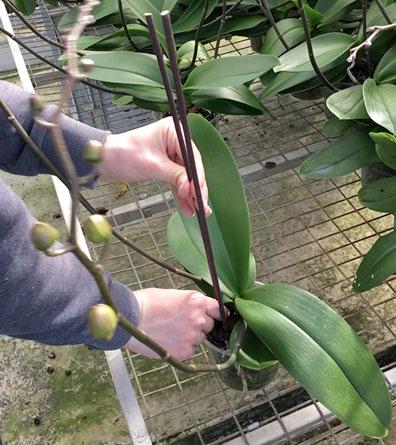
Following this, John spent two months working in the Centre des arts with the Performing Arts team. His task was to digitally classify the Centre des arts’ DVD collection. John excelled: he is rigorous, conscientious and likes repetitive routines.
« Cela m'apporte quelque chose de supplémentaire à mon expérience au travail que de travailler avec les élèves ESP. Quand je travaille avec eux, je veux leur donner de plus en plus de responsabilités. »
(Mario, jardinier à LGB)
“ Working with an ESP student gave me the opportunity to improve my demonstrations. John became autonomous very quickly in shelving books and other library material, which was really a support for us.”
(Soazig Mercier, librarian assistant, LGB Middle school)
« J’appréhendais de travailler avec John, mais j’ai été ravi de cette expérience, et le contact a été super. John sait travailler seul et bien.
J’ai eu beaucoup de plaisir et j’aurais aimé qu’il puisse venir plus de temps chaque semaine. »
(Jean-Noël, horticulteur à Verdonnet)
14 N°24 | autumn / automne 2019
Madeleine Hirsch
Madeleine a effectué un premier stage à la bibliothèque de l’Ecole Moyenne durant trois mois. Lors de ce stage, Madeleine a pu développer de nouvelles compétences, telles que l’accueil, le prêt et les retours des livres ainsi que l’entretien des livres. Cette première expérience de travail a aussi permis à Madeleine de développer des compétences transversales : la collaboration, la gestion du temps et l’organisation.
Après ce premier stage, Madeleine a eu l’opportunité d’effectuer un stage en dehors de l’école, dans un tea-room proche de l’école. Elle a préparé les commandes, servi les clients et aidé à l’entretien du tea-room.
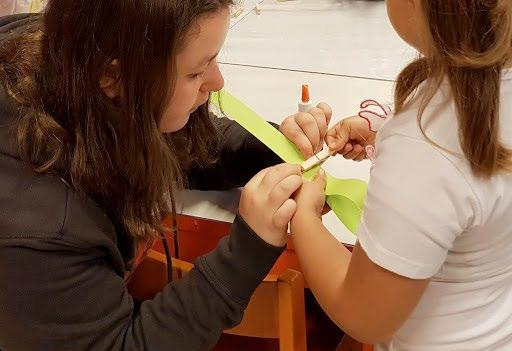
Madeleine a ensuite exploré un nouveau domaine professionnel, celui de l’éducation de la petite enfance et de l’enseignement primaire. Elle a pu faire cette expérience dans une classe de 3P à l’Ecolint, en proposant son aide durant les cours d’art et d’Ipad, et en accompagnant les élèves dans la lecture et les activités artistiques.
Encouragée par son travail dans la classe de 3P, Madeleine a poursuivi son exploration dans une crèche genevoise. Ayant initialement accompagné les enfants dans leurs jeux, Madeleine a ensuite préparé un travail créatif autour de la lecture d’un album pour un petit groupe d’enfants. Madeleine a eu énormément de plaisir dans ce stage de 6 semaines.
David Mudie
“ With her new skills, she was able to help us with all our regular library tasks. I would really like to continue working with ESP students in the future .”
(Akram Rezaei, librarian assistant, LGB Middle school)
« J’ai pu avoir confiance en elle. On a construit une belle relation. Les clients m’ont fait beaucoup de commentaires positifs sur son travail. Après avoir vécu cette bonne expérience, je suis prête à accueillir d’autres élèves pour des stages. »
(Fatma, propriétaire et gérante du tea-room “Le Vôtre”)
David a intégré l'équipe du service technique durant plusieurs semaines. Il a appris à utiliser le matériel nécessaire pour la peinture, à réparer des barrières, et à nettoyer la cafétéria. Suite à son travail sur le campus, David a pu effectuer un stage d’une demi-journée hors campus avec un serrurier, à réparer et changer des serrures dans un foyer.
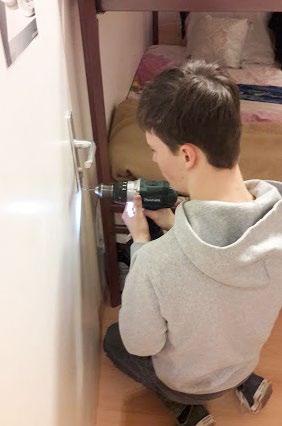
David a également passé plusieurs semaines au bookroom de l’école à ranger, nettoyer et assister dans l’inventaire des fournitures.
David développe également ses compé-tences de communication et de prise d’initiative en aidant M. N’Doye (responsable de la poste interne) à trier et distribuer le courrier dans les différents services du campus.
« Avec son sens de l’ordre et sa bonne mémoire visuelle, David a réussi à accomplir les tâches demandées avec beaucoup de précision. C’est une expérience que je retenterai avec David ou d’autres élèves sans hésiter, et je recommanderai à d’autres collègues de s’investir dans une expérience semblable.»
(Anna Duboux, Responsable du Bookroom)
« Il faut mettre en valeur les compétences spécifiques. Elles sont très utiles dans ce travail et il faut valoriser cela. Le fait d’avoir fait cette expérience avec David a ravivé mon engagement envers l’éducation et m’a donné envie de continuer l’expérience avec de futurs stagiaires. »
(Momar N’Doye, Département Marketing, Ecolint)
Momar N’Doye a aménagé un espace de travail pour David, avec des posters qu’il a choisis, quelques objets qu’il aime bien et un bureau sur lequel il y a deux pelles pour le courrier que David doit distribuer. En plus de la distribution de courrier, David a aussi appris à utiliser la machine à affranchir, travail qu’il a ensuite pu faire de manière autonome.
15 N°24 | autumn / automne 2019
WRITE ON !
In this issue, we meet three alumni who are published authors. Hernando De Soto’s (LGB ‘59) The Mystery of Capital is an international best-seller and has been translated into more than 30 languages. Herster Velmans (LGB ‘69) is an award-winning translator and the author of popular children’s books. Emily Halban (LGB ‘01), our youngest featured author, wrote to chronicle the complexities and inner struggles of living with anorexia.
Hernando De Soto (LGB ‘59)
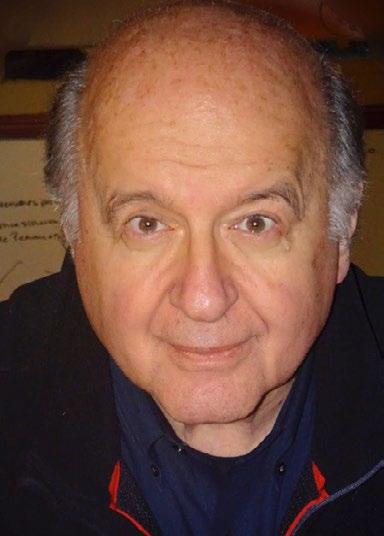
I attended Ecolint from 1949 to 1959. School Government, Students United Nations and multiculturalism is what got me into writing. I was President of the Student Council, founded the yearbook, passed the first school constitution, organized a coup d’etat to stay a second term, and then decided that good societies were made of good political democracies, viable economics, tolerance and communications.
After Ecolint, I went to the Institut Universitaire de Hautes Etudes Internationales, became the CEO of Universal Engineering of Swiss Bank Corporation, and later the Governor of the Central Reserve Bank of Peru. I occupied various political posts and occasionally, I published a book: the last one being
The Mystery of Capital - I believe now about five million copies are in print, in 30 different languages.
My advice to Ecolint students who dream of becoming authors? When you write, be prepared only to discover what you are writing about while you are doing the writing. It is a discovery process.
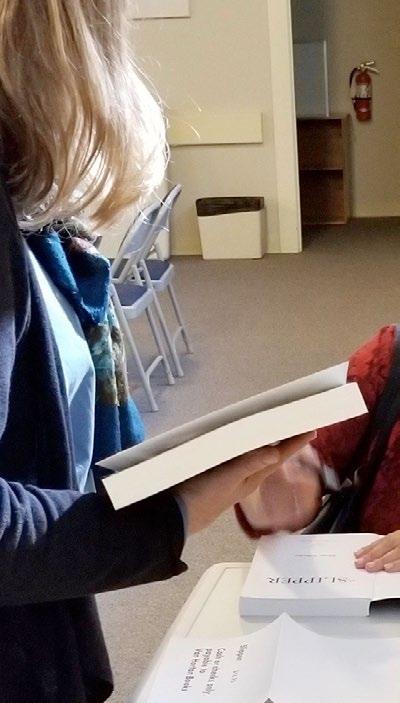
Every Ecolintian thing I have done in my life is a result of having been at Ecolint. When I’m dead and buried, underneath my name on the tombstone, it will say “Ecolinter.”
Hester Velmans (LGB ‘69)
I started at La Gradelle in 1960 in Mr Uzell’s 4th grade class, and graduated from LGB after Year 13, in 1969. Although my twin and I are Dutch, we decided to go to university in England, a choice probably influenced by our teachers, most of whom were British.
English was my best subject, and I was always a bookworm, so it seemed obvious to me that my future career would have something to do with words. Encouragement from my teachers must have led me in that direction as well. My choice was journalism, but since that was not considered an academic discipline at the time, I went for the next best thing – English language and literature at King’s College in London.
I soon found that at King’s, English meant studying Anglo-Saxon, Old Icelandic, Chaucer and the like; “modern literature” stopped at 1880. I felt a bit cheated, so after working as a “sub” (copy editor) on style magazines for a couple of years, I went back for an MA in modern literature at Queen Mary London. Next I worked as a news writer/producer at an international TV news agency, first in London and later
in New York. My Ecolint background was invaluable in that high-pressure job, where I was charged with sending cameramen into the world’s hot spots. But writing the news requires a different skill set than writing stories. It wasn’t until I finally quit to stay home with my young children that I found time to do what I really loved: writing fiction. My first attempts met with rejections from publishers, but I found that my languages could be put to good use as a translator, and so I pursued that as a way to having some income. I have now translated over twenty books, as well as written a few novels of my own, the last of which, Slipper, came out just last year.
16 N°24 | autumn / automne 2019
For Ecolint students who dream of becoming authors, my best advice would be: read, read, read. Even though writing is now taught in college, I believe that reading as widely as you can is still the best way to prepare for a writing career. Furthermore, as an Ecolint student you have a decided advantage in knowing more than one language, and I would encourage you to explore translation as another option. Translating from one tongue into another will deepen your understanding of the way language works. It will make you a better writer, and if you are anything like me, it will fill you with admiration for the many dazzling ways humans have found to express themselves.
Emily Halban (LGB ‘01)
I attended Ecolint from age 4 to graduation! I took one year out in 10th grade to dip into the local Swiss system - this was always planned as a “gap year” of sorts and I was back (running!) for 11th grade.

Education at Ecolint has at its core the drive for stretching individual creative flow. I use the term 'creative' broadly, as the definition of anyone's deep-seated passions and curiosities - be it in the arts; humanities; science. At school I was given the tools and freedom to explore my love of writing because I was taught to engage with thinking (rather than repeating) and to tap into emotions without judgment.
After Ecolint, I went on to the University of Oxford where I studied History and Modern Languages. In retrospect, I don't know why I didn't choose to study English – perhaps my history teacher, Mr Rowe, held ultimate powers of persuasion! Oxford requires a weekly handed-in essay, in each chosen degree (meaning I was tasked with two a week), so that definitely kept me writing! But the real craving to put pen to paper has always been a part of me and after sadly going through a number of painful years (starting towards the end of my time at Ecolint) suffering with anorexia, it was a natural extension for me to try to make written sense of what had happened in the hope that my words may possibly help others.
My advice to Ecolint’s aspiring authors is never to stop writing. Keep a notebook (or a digital equivalent!) with you at all times and
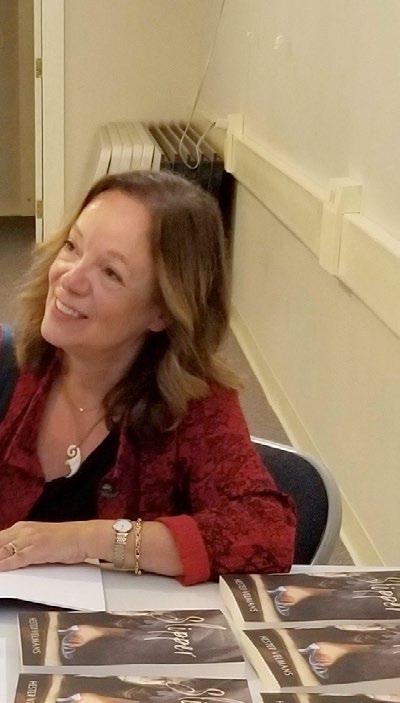
leave a written trail of all the extraordinary thoughts that come to you. Seek guidance and advice from those teachers at school who inspire you; they are an invaluable source of support and often know you even better than you know yourself! Use any excuse in your school work to channel your love of writing and above all believe that you can; because you can.
I think all of us lucky enough to have spent any given years at Ecolint will have been moved in ways that last a lifetime. Ecolint instils in you an urge to leave this world just a little bit brighter, in whichever small way you possibly can; it pushes you to consider perspectives far beyond the bounds of conventional education and tells you that you are part of something far greater than yourself. My time at school left me looking always to reach out; to offer a hand; to put myself in others' shoes and to imagine solutions to any given problem when all signs may point to there being none. The impact goes far beyond my activity as an author today, though it continues to be the underlying thrust to how I choose to write; I can only hope it shows through in the way I go about day to day as a friend, a daughter, a sister, a wife and, perhaps more than anything, as a mother.
17 N°24 | autumn / automne 2019
A CHAPTER IS BORN… CREATE YOUR OWN !
Chris Geiger (LGB ’74) had been mulling over a question in his mind for some time: how could he leverage the energy that erupts when Ecolint alumni share memories and stories about their time at school, and funnel it into something concrete and creative? Joined in this quest by Lalitha Sundaram Ramakrishnan (LGB ’71), Chris decided to invite alumni in the area to come together as the New England Chapter and support the projects of the school.
Catherine Mérigay recounts how it all happened.
alumni who live in your area. Whatever your idea is – finding one long-lost friend, organising a meetup, putting together a project – we would be delighted to support your initiative, or just to hear from you! Write to us at alumni@ecolint.ch or call us: +41 (0)22 787 25 55.
When Lalitha and Chris met Ecolint’s Director General David Hawley at the Alumni Gathering in Boston in September 2018, they had already been brainstorming ideas about organising a special event in support of Ecolint. Encouraged by the Boston meeting, the two alumni decided to put their budding plan into action.
At the end of October 2018, Lalitha and Chris gathered more than twenty alumni from LGB and La Chât at Chris’ beautiful farm in Massachusetts. Memories, news of various classmates, names of former teachers… stories were shared in an atmosphere of community and nostalgia. “While we were gathered there around the kitchen table, sharing our experiences, I realised how much of an enduring and deep impact Ecolint has had on each one of us, no matter how many years we’ve spent in Geneva,” explains Lalitha.
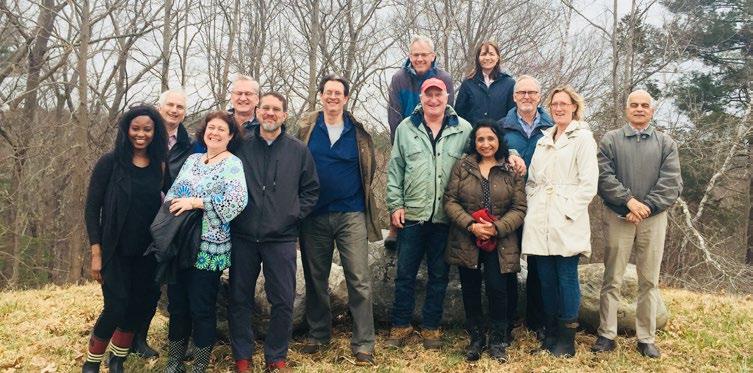
The enthusiasm and desire to help their beloved alma mater was so great, that the group of friends, gathered as the New England Chapter, donated more than $26,000 to Ecolint. The sum will be allocated to the newly created Scholarship Programme, designed to help young people
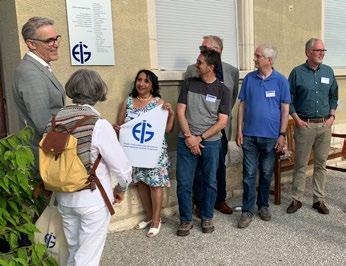
with atypical and difficult backgrounds to benefit from an Ecolint education and experience. Let us hope that thanks to initiatives such as this one, these students will one day gather with their schoolmates in some 20 or 30 years, and exchange fond memories from their years at Ecolint!
In order to recognise this touching and generous action, Ecolint organised a ceremony of thanks on 20th June, during the Alumni World Reunion. The Director General, Lalitha, and several members of the New England Chapter inaugurated a plaque in the name of the Chapter, next to the main entrance of the Grand Bâtiment at LGB.
Lalitha and Chris continue to think about how to grow and challenge their Chapter, and have been joined by another alumnus from Massachusetts, Paul Korngiebel (LGB ’84). They’ve decided to meet again soon in order to discuss the Chapter’s future projects. Stay tuned!
Want to start your own Chapter ? You might be crossing paths every day with other Ecolintians without ever realising it, even if you’re on the other side of the world! The Alumni Office can help you find
“It was a great experience for me to work with members of the New England Chapter to shape a remarkable initiative: kicking off the new Scholarship Programme. To me, this is a phenomenal example of how we can create impact when coming together as a community with shared values. More options will soon be available to advance Ecolint’s mission, the first of which will be Giving Tuesday on 3 December.
Our team is dedicated to serve our entire community for the purpose of advancing the Foundation, offering engagement opportunities to alumni, parents, friends and all community members.
Please contact us at supportingecolint@ecolint.ch and stay tuned for more philanthropic news.”
Brian Wahlen, Development Associate
18 N°24 | autumn / automne 2019
A LEGENDARY ALUMNA
Archivist Alejandro Rodríguez-Giovo wowed Alumni World Reunion attendees this summer with his presentation on the History of Ecolint. He is indeed a treasure trove of interesting anecdotes and surprising stories about Ecolint’s past. He shares his latest discovery with us here.
Conceited though the statement may sound, it’s nevertheless true: over the decades, Ecolint has become one of the world’s most respected and iconic educational institutions. I am regularly reminded of this, as curator of its core historical documents, by the increasing frequency with which academics and researchers spontaneously contact me with questions or with morsels of information. Often they alert me to aspects of our school’s rich history of which – even after 40 years in the Foundation as a student and teacher –I was entirely unaware.
Not long ago a scholar from the Zürcher Hochschule der Künste (Zürich University of the Arts) wrote to me with a request for documents relating to one of our students in the early 1930s, a certain Eleanora Solomonovna Derenkovskaïa – better known, she (the scholar) added, as Maya Deren. I blush to disclose that neither name meant anything to me. You will better understand the full extent of my embarrassment if you look up the latter in the on-line Encyclopaedia Britannica and peruse the substantial article dedicated to her. It turns out that, following her years at Ecolint (1930-1933), Deren became a ground-breaking filmmaker who played a prominent role in the history of experimental cinematography. Indeed, when the British Film Institute celebrated the 100th anniversary of Deren’s birth, it referred to her as a “legend.” Her first, brief film, Meshes of the Afternoon (1943), is regarded as a classic of cinematographic, psychologically-probing surrealism, and has achieved a cult status comparable to Luis Buñuel and Salvador Dalí’s Un chien andalou. This recognition is underscored by a monumental, ongoing biography, The Legend of Maya Deren, over 1,000 pages of which have so far been published in two volumes by the Anthology Film Archives in New York.

In addition to the intrinsic merit of her avantgarde contribution to cinematographic art, Deren’s legend is enhanced by her writings, which in the words of Ernest Callenbach in Film Quaterly, “set standards of originality, alert creative intelligence and artistic selfconsciousness which commercial filmmakers of the time concealed, if they were lucky enough to possess them.”
Deren’s precocious, sparkling intelligence and vivacity were already evident during her years in Ecolint. In her first letter home (9th October 1930) after arriving in La Grande Boissière at the age of 13, she wrote enthusiastically but with rudimentary syntax: “Something very exciting has happened to me. I was sent from my school to the Assembly of the League of Nations. I heard the president speak. Isn’t that nice. It was very interesting.”
With each successive letter, however, her linguistic refinement and attention to vivid detail blossomed. She was “thrilled” in November 1930 to be called an “authoress” by her English teacher. She soon lived up to this epithet: by February 1931, she had penned for Philia, one of Ecolint’s earliest student magazines, a charming, earnest and elaborate (though fairly conventional) homage to horse-chestnut trees. Rapidly she found a more intensely idiosyncratic and powerful voice. In December of the same year, she wrote an essay describing her impressions of Mahatma Gandhi, whom she had just encountered at a lecture (for which Ecolint had obtained coveted tickets) in Geneva’s Victoria Hall. Deren was mesmerized by Gandhi and his message, and expressed her feelings about him with a passion, energy and eloquence that are breath-taking. Gandhi’s impact on Deren spilled over into a haikustyle poem she dedicated to him:
Small in size
Great in belief
Poor in clothing
Rich in will
Withered in body
Full with purpose
Scarce in beauty
Overflowing with wisdom
That is Gandhi!
Deren’s intellectual and linguistic maturation between the first, rather elementary letter she sent her mother from LGB and her second contribution to Philia, published in the February 1932 issue, is startling. This article, entitled “Russia”, provides a remarkably informative, cogent and articulate analysis of the Bolshevik revolution’s unfolding successes, vicissitudes and shortcomings. Nevertheless, her hopeful, sympathetic tone touchingly reveals Deren’s deep-rooted loyalty as an adolescent to her country of birth (she had acquired U.S. citizenship in 1928) and to the socialist cause, which she supported ardently throughout her subsequent studies in Syracuse University and New York University.
By the time she graduated from Ecolint in 1933, Deren had become Philia’s editor, and was busy selling annual subscriptions to the magazine for Fr. 6 a year. It is fair to say that she invested in the school almost as much as she got out of it – which is perhaps not surprising, if one bears in mind what she wrote to her mother excitedly on the 11th November 1930: “And I must say again, this is a wonderful school.”
19 N°24 | autumn / automne 2019
Maya Deren, in her film “Meshes in the Afternoon”.
WHERE IS MY PAPER ECHO MAGAZINE ?
Just as we ask our students to engage “with the political, ethical and environmental challenges of their times”, so we in the Alumni Office have decided that we need to “do our bit” to help the environment. Rather than printing and shipping 3.5 tonnes of paper around the globe every year, we have decided to digitalise echo Magazine from now on, sending it via email rather than regular post, as many leading educational institutions have already chosen to do. The significant quantity of paper, chemicals and energy used to produce the magazine, and the fossil fuels to move it around the planet, no longer seemed justifiable in an age when almost all of our alumni have access to the internet. This decision also enables us to keep a watchful eye on our expenses, ever conscious that it is current parents, and their employers, who are footing the bill for everything that we choose to do as a school.
We fully realise that this might be disappointing for some of you, and that a digital edition of echo Magazine will never quite replace a physical hard-copy magazine, however digital technologies also open the path to a number of new possibilities. As a community member of a school that has always prided itself on being a pioneer, we hope you will enjoy some of the new features - such as embedded videos and links to other online content - which are only possible in an online magazine. The online version is available as a PDF and you can easily print it in your locality if this is something you feel you really need to do.
SOCIAL MEDIA
Ecolint on Facebook facebook.com/ecolint
Ecolint on LinkedIn sl.ecolint.ch/linkedinpage
Ecolint on Instagram @ecolintgeneva
Alumni on Facebook facebook.com/ecolintalumni
Alumni on LinkedIn sl.ecolint.ch/linkedingroup
Alumni on Twitter twitter.com/ecolintalumni
YOU MAY HAVE MISSED…
Entrepreneurs visit Year 11 at LGB
After reading the echo Magazine article on successful alumni entrepreneurs in the Geneva food industry, Laura Italici invited some of these same entrepreneurs to speak to Year 11 students who are making their IB subject choices. alumni.ecolint.ch/visit_year11
Centre des arts programme
The Centre des arts is back with an exciting and varied programme for 2019-20. From classical music events to contemporary dance shows, exhibitions, conferences and plays, we are looking forward to an excellent year of celebrating the arts. www.ecolint-cda.ch/en/events
Treasure from the archives
Our Foundation archivist unearthed yet another gem: a sketch-book containing drawings and photographs by famous alumna portrait-artist Milein Cosman. alumni.ecolint.ch/mileincosman
‘Tis the season for Escalade
Every November, the Alumni Office ships chocolate marmites across the world, to groups of Ecolint alumni celebrating the Escalade. If you have a group of 5 people or more in your area and want to host an Escalade dinner, get in touch! alumni@ecolint.ch
CHANGE OF ADDRESS? GET IN TOUCH !
Email: alumni@ecolint.ch
Telephone: +41 (0)22 787 25 55
Web: alumni.ecolint.ch
(Alumni can update their own details on the website.)

























































